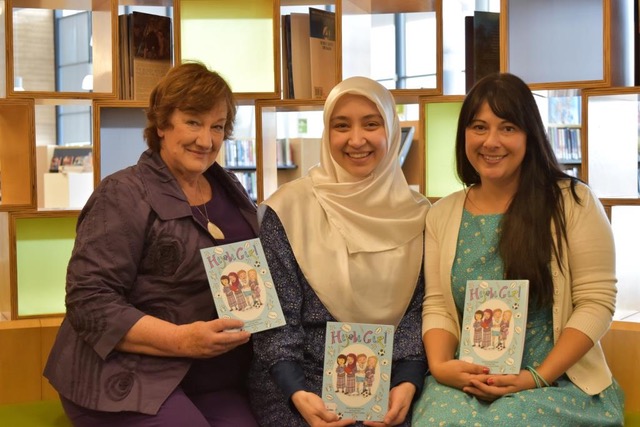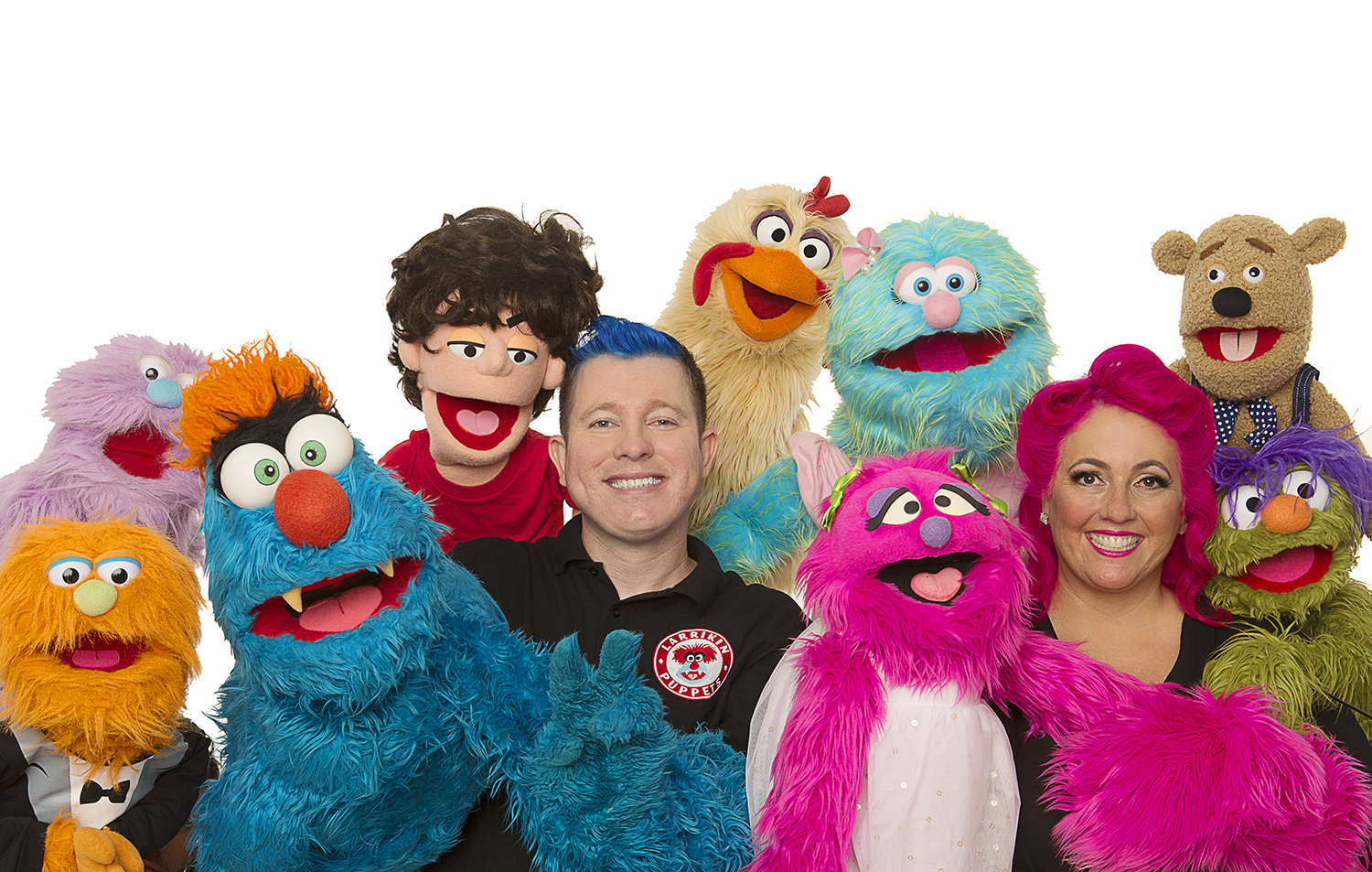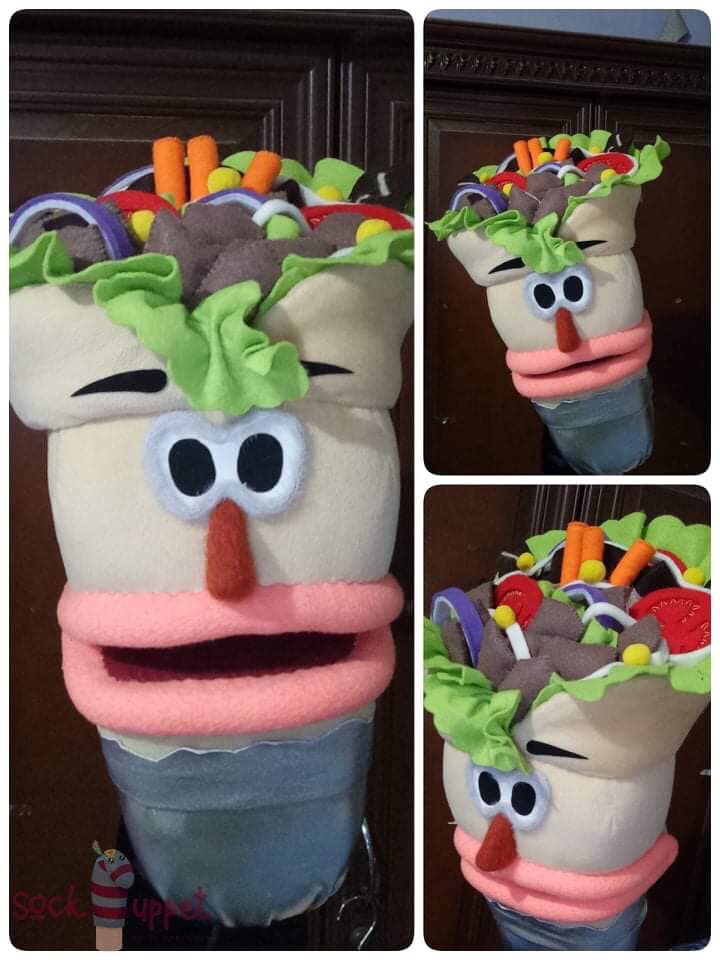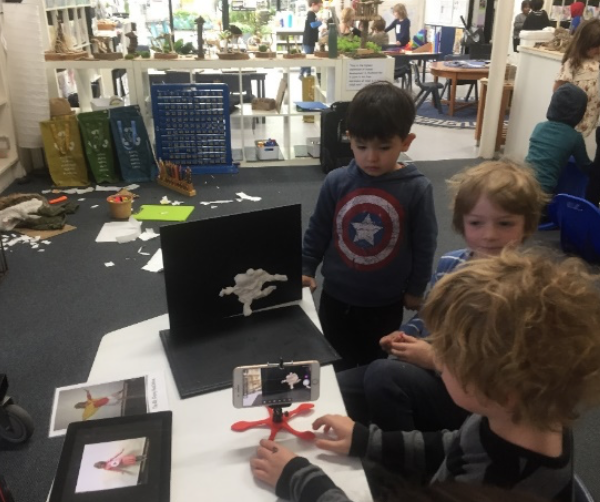How an artistic collaboration for ECEC is waiting out COVID

As many of those working in early childhood education and care (ECEC) know, rejections can be tough to cope with. When a colleague shuts down an idea, a family requests a different educator, or your suggestion for the end-of-year party venue is overruled, it can sting.
Imagine hearing 41 times that your idea for a book that champions diversity as a strength, not a weakness, and that supports the idea that children need fun stories reflecting their real lives, was not what publishers were looking for.
Now imagine overcoming that, and seven years later reaching a new phase in the journey of your story, preparing to bring it to life in front of thousands of children attending ECEC services via a sophisticated puppet show – only to be blocked by a global pandemic.
This, sadly, has been the situation for a dedicated team comprising of two authors and a puppeteer, who have been striving to bring the story of Melek, a Muslim Australian girl who loves football, to life for young audiences around Australia.
The Sector met with the team behind Hijabi Girl – Hazel Edwards OAM, children’s librarian and author, Ozge Alkan, and puppeteer Elissa Jenkins, to learn more about the journey to bring Hijabi Girl to the stage, and to nurture their creation through these confusing times.
Introducing Hijabi Girl
Hijabi Girl began life as a children’s book, written for children aged between seven and nine years. The work of co-authors Hazel Edwards OAM and children’s librarian Ozge Alkan, and illustrator Serena Geddes, Hijabi Girl was first published five years ago, and has enjoyed many reprints since.
With themes around diversity, identity, anti-bullying and creative problem-solving, Hijabi Girl is a celebration of acceptance and coping successfully with being different, tackling issues many ECEC services navigate daily.
“We had rejection after rejection for Hijabi Girl which was disheartening to me because I knew that we had a good story in our hands that the kids needed to hear” Ozge said.
Boosted by Hazels’ constant refrain of “I am determined to get this story out!” she persisted with self publishing the book, and achieving her dream of making a story available that featured the Australian Muslim girls she worked with each day.
“I was after a fun story,” she said. “Too often books that have Muslim characters are migrants, limited in English, shy in personality, which is of course important too. But I wanted a character similar to the outgoing, giggling, Australian Muslim girls who came to my library daily.”
Muslim visibilty
Australia is a wonderful place to live as a Muslim, Ozge said, however it is “not without its challenges”.
“As a Muslim woman who wears a hijab I am identified as Muslim before anything else, and people already have an opinion of who I am before I open my mouth,” she explained.
“I hope that books like Hijabi Girl will benefit a younger generation to see people who dress or believe differently are humans just like them,” Ozge said.
Hijabi Girl’s lead character Melek is a lot like Ozge. She takes initiative and likes to get things done. She is enthusiastic, loves reading, and is unapologetically herself.
“Unlike me,” Ozge adds, “she is athletic! She likes playing footy while I feel winded just watching.”
From the page to the stage
The idea to bring Hijabi Girl to life in the form of puppetry came when Elissa Jenkins of Larrikin Puppets wanted to expand the range of stories shared in the shows performed by the company.
In Larrikin shows, Elissa will read the story, as her human self, and the puppet follows along, practicing active listening and understanding. Hazel responded to Elissa’s request with some ideas, throwing a new possibility into the mix – what about a story for older audiences, those aged up to nine?

The thought of bringing Hijabi Girl to life with puppetry offered the chance for the puppeteers to expand not only their offering, but their horizons.
Making a more sophisticated puppet show, with custom-made puppets that reflect characters in the story really appealed to Elissa. Having a show which was suited to children in the outside school hours care (OSHC) age bracket, as well as the existing early childhood offerings available with Larrikin was also a draw, she added.
Following the tragic events with the Lindt Café and NZ Mosque incidents, the trio anticipated that their work would face fearful resistance, and be viewed as “too big” or “too sensitive” of a topic for OSHC and ECEC audiences.
In response, Elissa wrote a powerful explanation of the importance of the puppetry arts which explained to educators and families the need for sharing tolerance in a small way, seeking support for the collaboration.
The subsequent crowdfunding was oversubscribed, raising over $8,000 to bring the dream to life.
Pandemic presses pause
Like many in the arts sector, the COVID-19 pandemic and subsequent social distancing measures have raised challenges for the Larrikin Puppeteers and the Hijabi Girl project.
“2020 was going to be our big year,” Elissa said. “We were going to release a children’s album of songs, launch and tour Hijabi Girl to schools and regional theatres, and had a national TV appearance lined up.”
Of course, with the advent of the pandemic, plans such as Hijabi Girl, along with the core work of Larrikin, such as ECEC performances, shows in shopping centres and at festivals, are all on hold, leaving Larrikin Puppets with no income.
Over the horizon
While it is unlikely that children in ECEC settings around Australia will enjoy the Hijabi Girl puppet show this year, The Sector wanted to find out more about what the creators hope their young audiences will take away from the experience, once shows are ready to resume.
“Melek copes really well with being different,” Elissa said, “and that’s one big thing we hope all children who attend will take away – that there is strength in being different.”
“None of the children in the story feel any shame about being who they are. In fact, Melek is very confident and has impressive leadership skills. She stands up for herself and others.”
For Ozge, her wish for the audience is simple – “I hope they have fun watching the puppets, and see some of themselves in the story. I love how Elissa connected with the story and translated it to the world of puppetry. Have you seen that Kebab puppet? It’s the best!”

As for Hazel, her wish is closer to home. “I’m looking forward to sitting in the audience, watching the Larrikin performance with my grandson, and watching the audience reactions too.”
“The first performance a child experiences needs to be of the highest quality,” she said. Then, and only then, will they be lifelong participants of the arts “and become problem solvers, not problems.”
Popular

Provider
Workforce
Quality
Fair Work Commission confirms forced resignation grounds in case involving early learning provider
2025-12-08 07:30:23
by Fiona Alston

Workforce
Quality
Practice
Provider
Research
How one teacher is using Little J & Big Cuz to build empathy, understanding and confidence in First Nations learning
2025-12-08 07:15:19
by Fiona Alston

Policy
Economics
Jobs News
Provider
Workforce
Children’s Services Award changes finalised to address gender-based undervaluation
2025-12-12 06:58:10
by Fiona Alston
















